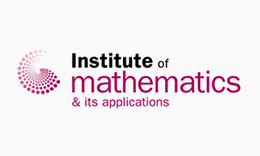Mathematics / Physics Code FG31 Attend an Open Day Attend an Open Day
Apply NowKey Facts
FG31-
UCAS Tariff
120 - 112
-
Course duration
3 years
Available for September start 2026
Further details on entry requirements
Apply NowThe Mathematics and Physics degree, at Aberystwyth University, allows you to explore two closely-related disciplines in a coherent and structured format.
You will discover the core elements of each subject area and acquire a firm knowledge of the mathematical and numerical skills that will be important to your understanding of physical concepts and natural phenomena.
Graduates of Mathematics and Physics are in significant demand across many industries such as engineering, technology and finance.
Course Overview
Modules September start - 2026
Please note: The modules listed below are those currently intended for delivery during the next academic year and may be subject to change. They are included here to give an indication of how the course is structured.
| Module Name | Module Code | Credit Value |
|---|---|---|
| Dynamics, Waves and Heat * | PH10020 | 20 |
| Electricity, Magnetism and Matter * | PH11120 | 20 |
| Laboratory Techniques for Experimental Physics (10 Credits) * | PH15510 | 10 |
| Modern Physics | PH14310 | 10 |
| Algebra * | MA10510 | 10 |
| Calculus * | MP10610 | 10 |
| Further Algebra and Calculus * | MP11010 | 10 |
| Mathematical Analysis * | MA11110 | 10 |
Options
| Module Name | Module Code | Credit Value |
|---|---|---|
| Coordinate and Vector Geometry * | MA10110 | 10 |
| Differential Equations * | MA11210 | 10 |
| Probability * | MA10310 | 10 |
| Statistics * | MA11310 | 10 |
| Module Name | Module Code | Credit Value |
|---|---|---|
| Complex Analysis | MA21510 | 10 |
| Linear Algebra * | MA21410 | 10 |
| Electricity and Magnetism * | PH22510 | 10 |
| Mathematical Physics * | PM26020 | 20 |
| Optics | PH22010 | 10 |
| Principles of Quantum Mechanics | PH23010 | 10 |
| Thermodynamics | PH21510 | 10 |
Options
| Module Name | Module Code | Credit Value |
|---|---|---|
| Advanced Dynamics | MA25710 | 10 |
| Applied Statistics | MA26620 | 20 |
| Distributions and Estimation | MA26010 | 10 |
| Hydrodynamics 1 | MA25610 | 10 |
| Introduction to Abstract Algebra | MA20310 | 10 |
| Introduction to Numerical Analysis and its applications * | MA25220 | 20 |
| Real Analysis | MA20110 | 10 |
| Module Name | Module Code | Credit Value |
|---|---|---|
| Concepts in Condensed Matter Physics | PH32410 | 10 |
| Particles, Quanta and Fields | PH33020 | 20 |
| Practical Research Skills (10 credits) * | PH35110 | 10 |
| Project (20 Credits) * | PH35620 | 20 |
* Also available partially or entirely through the medium of Welsh
Careers
Teaching & Learning
Student Testimonials
Typical Entry Requirements
UCAS Tariff 120 - 112
A Levels BBB-BBC to include B in Mathematics and B in Physics component.
GCSE requirements (minimum grade C/4):
English or Welsh and Mathematics
BTEC National Diploma:
DDM-DMM with B in A level Mathematics and B in Physics
International Baccalaureate:
30-26 with 5 points in Mathematics and Physics at Higher Level
European Baccalaureate:
75%-65% overall with 7 in Mathematics and Physics
English Language Requirements:
See our Undergraduate English Language Requirements for this course. Pre-sessional English Programmes are also available for students who do not meet our English Language Requirements.
Country Specific Entry Requirements:
International students whose qualification is not listed on this page, can check our Country Specific Entry Requirements for further information.
The University welcomes undergraduate applications from students studying the Access to Higher Education Diploma or T-level qualifications, provided that relevant subject content and learning outcomes are met. We are not able to accept Access to Higher Education Diplomas or T-levels as a general qualification for every undergraduate degree course.
Our inclusive admissions policy values breadth as well as depth of study. Applicants are selected on their own individual merits and offers can vary. If you would like to check the eligibility of your qualifications before submitting an application, please contact the Undergraduate Admissions Office for advice and guidance.

